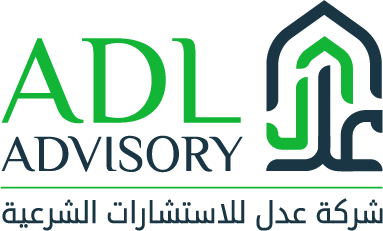
Mission Impossible: Standardizing Shariah Standards, Resolutions and Certifications in Islamic Finance
A Halal Introduction
From an Islamic perspective, all human endeavors fall under one of 5 jurisprudential rulings, namely, obligatory (wajib/fard), recommended (mustahab/mandub), permissible (halal/mubah), disliked (makruh) or forbidden (haram). Of these 5, ‘haram’ has become a household word used by all – Muslims and non-Muslims alike. Its antonym is ‘halal’, meaning permissible (according to the Shariah) or Shariah-approved, equated often with the term ‘kosher’ in the Jewish faith.
As it applies to the Islamic banking and finance (IBF) industry, goods and services produced or transacted as well as the agreements used to bring-about such productions or conclude such transactions require the ‘halal’ or ‘Shariah-approved’ certification in order to be labelled “Shariah-compliant.” The two questions that follow are, who issues the said certification and what is the basis of this authority? In regards to the first question, the simple answer is Shariah scholars. Pertaining to the second, jurisdiction is what serves as the basis of the authority. We may use Malaysia’s halal market to further elaborate on these answers.
Malaysian Experience: Halal-Certified Products and Shariah-Compliant Instruments
Businesses operating in Malaysia’s halal market are only allowed to label their food, cosmetics and pharmaceutical products as “Shariah-compliant” once they have satisfied the criteria established by the designated regulatory body known as Jabatan Kemajuan Islam Malaysia (JAKIM) and obtained the relevant certifications from it. It is, therefore, understood that there exist uniformed standards within its halal market delineating whether a product qualifies as halal or Shariah-compliant or does not qualify as so.
Ensuing, the biggest contributor to the global halal market’s valuation is the IBF industry. Malaysia’s own is said to be unparalleled. It has served as the capital for Islamic finance-related scholarly dialogues and technological innovations, often hosting some of the biggest annual conferences within the industry. Despite occasionally being on the receiving end of criticism, its proactivity in not only venturing into but also attempting to establish the rulebooks to operating within unchartered territories renders it the talk of the industry and justifies its title as global leader of IBF for more than a decade.
One of the cornerstones of Malaysia’s IBF industry is its establishment of Shariah bodies within its financial regulating institutions: one under the Securities Commission (SAC, SCM) for its capital market, and another in the Central Bank (SAC, BNM) for the banking and insurance sectors. The respective Councils are given the highest authority on Shariah-related matters in IBF. These constitute the strategies adopted by Malaysia to standardize its Shariah governance standards and Shariah-compliant certifications for products and instruments within its halal market.
International Shariah Standard-Setters and Certification Providers of Islamic Finance
Similar efforts have been carried out on the international level. Prestigious organizations like AAOIFI have developed Shariah governance, and accounting & auditing guides and standards that are widely adopted by states (e.gs. Qatar and Bahrain) and organizations within the IBF industry. Along the same lines, the renowned international body known as IFSB has established governance and prudential standards and principles for the various sectors of the IBF industry (i.e. banking, capital market and takaful).
In addition to these two, the likes of the OIC’s IIFA based in Jeddah, Saudi Arabia, and the World Muslim League’s IFC based in Mecca, Saudi Arabia, also play a crucial role in issuing much vaunted and respected Shariah resolutions, including on IBF-related matters. Their general yet substantial scholarly resolutions on highly contentious subject matters play a complementary role, establishing a decisive stance and further backing the comprehensively particularized Islamic finance standards of the aforementioned standard-setting organizations.
Whilst both national and international efforts must be recognized, a major quandary comes about when looking at matters on the latter level. Whereas on the national level, as was shown in the case of Malaysia with the respective SACs, the relevant authorities are able to standardize practices through enforcing regulatory standards, pronouncements/resolutions and certifications on entities within their geographical dominion, they cannot impose such regulations on entities that fall beyond it. This is due to the earlier-mentioned international law principle of jurisdiction that restricts each country’s legal authority to entities within its borders.
Meanwhile in International Conventional Finance…
Looking on the other side of the fence, we see that global conventional finance is governed by unified standards and policies introduced by bodies like the IFRS (with regards to accounting and auditing) and the ICC’s banking commission (with regards to banking, insurance and other finance-related matters). The case in the global IBF industry is quite the contrary. In fact, major players like Malaysia, Indonesia and Saudi Arabia have either established their own governance standards or favored the IFRS and ICC Banking Commission’s more recognized and upheld standards and policies in international transactions over those of AAOIFI and IFSB.
While Shariah scholars unanimously recognize the role that differences in jurisprudential opinion plays in nurturing and exchanging innovative ideas, they are equally in agreement that the lack of standardized – or at least harmonized – Shariah governance standards, resolutions and certifications within the global IBF industry has, among other things, exposed investors to additional costs arising from the inconsistencies and the lack of transparency, thereby hindering the industry from reaching new heights.
In an attempt to resolve the above matter, the industry’s thought leaders have proposed various viable counter-solutions. For instance, doctors Ahmet Faruk Aysa, Said Bouheraou and others have written that there is a need to establish dedicated training programs and innovation centers with the aim to build capacity and foster the talents needed to enhance/advance standardization efforts.
In the same spirit, Professors Umar Oseni, Mohammad Kabir Hassan and Syed Nazim Ali have called for the establishment of “boilerplate” clauses that would serve as the immutable bases upon which the various genres of IBF contracts concluded on the international level are built upon. Additionally, the likes of INCEIF’s Professor Mohamad Akram Laldin have postulated that a key contributing factor to achieving standardization or harmonization in the global IBF industry and minimizing Shariah certification mislabels is for all entities to be regulated, even if not under a centralized body.
Final Remarks: Before the Curtains are Drawn
There is no doubt that there is a dire need for there to be a separate, dedicated discussion on the point-by-point steps required to complete the laborious mission of standardizing Shariah standards, resolutions and certifications. In the meantime, however, the writer poses the following noteworthy remarks as the final statements of this write-up.
Firstly, aside from the fact that every sane, adult Muslim has a moral obligation to ensure that their financial dealings are halal-certified and that their wealth is free from haram elements, numerous studies have evidenced that the investor base seeking ESG and other sustainable investment offerings is ever-growing just as the Muslims population is – faster than any other religion.
Secondly, with the current valuation of the global halal market estimated to sit somewhere between USD 2–7 trillion and the IBF industry taking up the biggest share of it, the Shariah’s socially responsible and environment-friendly core features renders the IBF market a natural and inevitable destination for all, not only due to its divinely-anchored moral and ethical framework, but also because of its proven profitability! Hence, it is only a matter of time before we witness an unprecedented shift towards it.
Last but not least, in just the last 4 months, Malaysia summoned a decent number of the IBF industry’s torchbearers and hosted them for two monumental events, namely, the International Shariah Scholars Forum (ISSF) 2023 and the 15th International Conference on Islamic Economics and Finance (ICIEF) 2024. To no one’s surprise, the subject matters of sustainability and Maqasid al-Shariah formed the essence of the deliberations.
In short, all the stars point towards some form of standardization of Shariah standards, resolutions and certifications being the determinant of the IBF industry’s progression. It is, therefore, incumbent that the relevant figureheads strengthen and accelerate such efforts in preparation for when heads are turned for when they are, it’s ‘showtime’!!
References
https://hbr.org/2019/01/the-state-of-socially-responsible-investing
https://iccwbo.org/global-issues-trends/banking-finance/
https://mifc.com/-/epicentre-december-2023-malaysia-continues-to-lead-the-ifdi-global-ranking-for-the-11th-consecutive-year#:~:text=In%20the%20recently%20published%20ICD,%
2C%20governance%2C%20awareness%20and%20sustainability
https://www.adroitmarketresearch.com/industry-reports/halal-market
https://www.comcec.org/wp-content/uploads/2022/06/proceedings-of-the-17th-meeting-1.pdf
https://www.investopedia.com/terms/i/ifrs.asp
https://www.mida.gov.my/mida-news/malaysia-top-of-the-chart-in-global-islamic-finance-ranking-for-10th-year
https://www.pewresearch.org/short-reads/2017/04/06/why-muslims-are-the-worlds-fastest-growing-religious-group/
https://www.researchgate.net/publication/367023933_Standardization_Efforts_in_Islamic_Finance
https://www.salaamgateway.com/story/ifrs-or-aaoifi-well-stick-with-the-former-say-malaysian-accounting-experts.
https://www.sc.com/en/news/ccib/what-driving-global-interest-islamic-finance/#:~:text=Islamic
%20finance%20continues%20to%20gain,liquidity%20with%20core%2C%20global%20investors
https://www.statista.com/statistics/1090815/worldwide-value-of-islamic-finance-assets/
https://www.statista.com/topics/4428/global-halal-market/#topicOverview
https://www.statista.com/topics/6345/islamic-financial-sector/#editorsPicks
